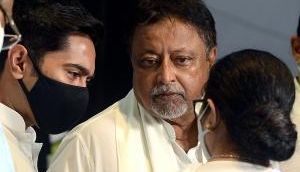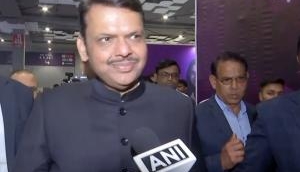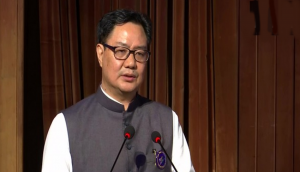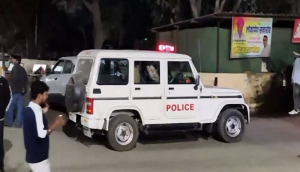
Following a two and a half hour long discussion, that took place on the sidelines of the Shanghai Cooperation Organisation (SCO) ministerial meeting in Moscow, Russia. Indian and Chinese foreign ministers have agreed on a five point consensus to de-escalate the four month long border face-off between troops at the Line of Actual Control.
In a joint press statement issued after the meeting, the first tete-a-tete between the two ministers since the tension began, stated, “The two Foreign Ministers agreed that the current situation in the border areas is not in the interest of either side. They agreed therefore that the border troops of both sides should continue their dialogue, quickly disengage, maintain proper distance and ease tensions”.
The five point plan includes complying with the agreement between Prime Minister Narendra Modi and President Xi Jinping to “not allow difference to become disputes”, swift de-escalation to tranquil tension, acting in accordance with existing India-China border pacts and eschewing from escalatory activity, carrying on with dialogue between the Special Representatives NSA Ajit Doval and Mr. Wang and also the other channels and eventually, to work on fresh Confidence Building Measures (CBMs).
As maintained by sources, India’s External Affairs Minister S Jaishankar conveyed strong concern over the Chinese troops deployed along with equipment on several points of the LAC.
“The Chinese side has not provided a credible explanation for this deployment. The provocative behaviour of Chinese frontline troops at numerous incidents of friction along the LAC also showed disregard for bilateral agreements and protocols. The Indian side clearly conveyed that it expected full adherence to all agreements on management of border areas and would not countenance any attempt to change the status quo unilaterally,” the sources said.
Although the consensus to disengage was decided by two leaders, both sides stated that they have entrusted the border commanders on the ground to resolve the arrangements of positioning for the soldiers, while they will provide diplomatic support to the action. In view of the fact that border commanders have been in contact on disengagement procedures since June and have made hardly an progress so far, it is uncertain from the statement how the process would now become different and facilitate de-escalation. Neither side have made any statement regarding restoration of the ‘status quo ante’ to positions held by troops in April, ahead of the PLA’s mobilisation.
“The immediate task is to ensure a comprehensive disengagement of troops in all the friction areas. That is necessary to prevent any untoward incident in the future. The final disposition of the troop deployment to their permanent posts and the phasing of the process is to be worked out by the military commanders,” government sources said.
According to sources on the Chinese side, Mr. Wang was firm on China’s “stern position” in the border areas, “emphasising the imperative is to immediately stop provocations such as firing and other dangerous actions.” having said that the statements made by the Chinese officials was more pacifying and less negative than in the past.
“Wang stated that China-India relations have once again come to a crossroads. But as long as the two sides keep moving the relationship in the right direction there will be no difficulty or challenge that can’t be overcome.”
The Foreign Ministers meeting in Moscow, which was assisted by Russian Foreign Minister Sergey Lavrov, who welcomed them at the SCO meeting, and then a Russia-India-China lunch which set the stage for the bilateral talks on Thursday.
It is anticipated to come behind talks of the Special Representatives and another conference of the Working Mechanism on Consultation and Coordination on India China border affairs (WMCC).
Also Read: Border Tensions: India-China commander-level talk fails to yield breakthrough on de-escalation




_in_Assams_Dibrugarh_(Photo_257977_300x172.jpg)


![BJP's Kapil Mishra recreates Shankar Mahadevan’s ‘Breathless’ song to highlight Delhi pollution [WATCH] BJP's Kapil Mishra recreates Shankar Mahadevan’s ‘Breathless’ song to highlight Delhi pollution [WATCH]](https://images.catchnews.com/upload/2022/11/03/kapil-mishra_240884_300x172.png)

![Anupam Kher shares pictures of his toned body on 67th birthday [MUST SEE] Anupam Kher shares pictures of his toned body on 67th birthday [MUST SEE]](https://images.catchnews.com/upload/2022/03/07/Anupam_kher_231145_300x172.jpg)






_in_Assams_Dibrugarh_(Photo_257977_1600x1200.jpg)